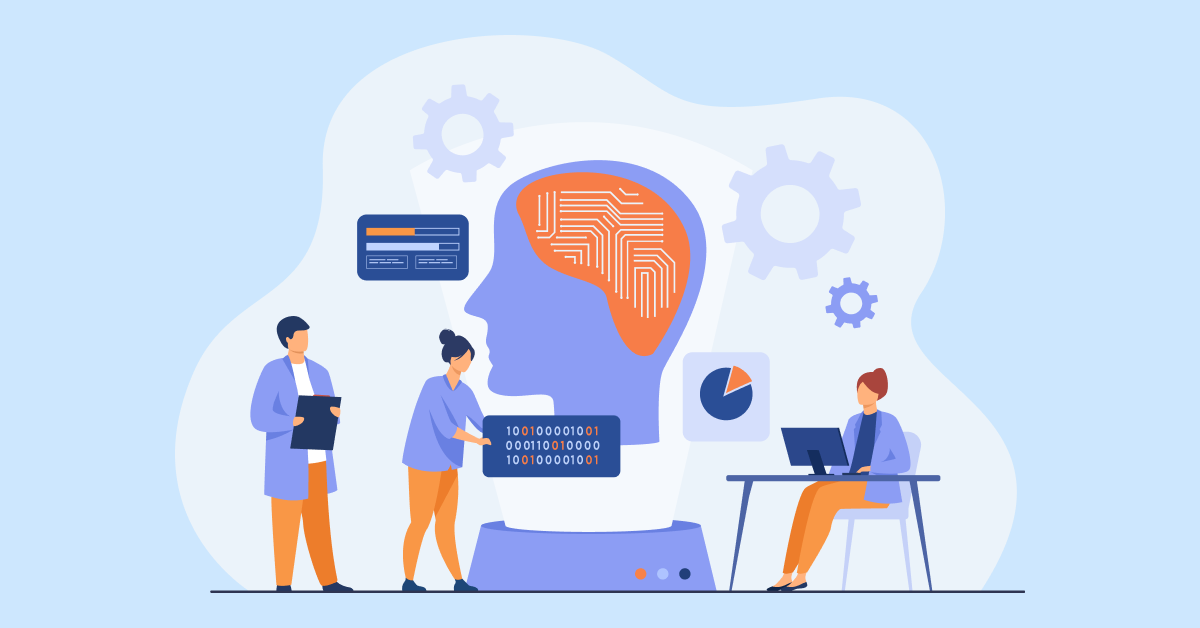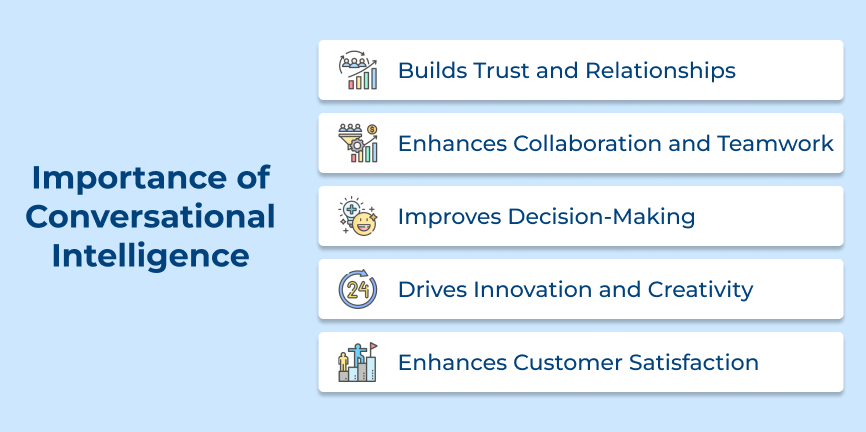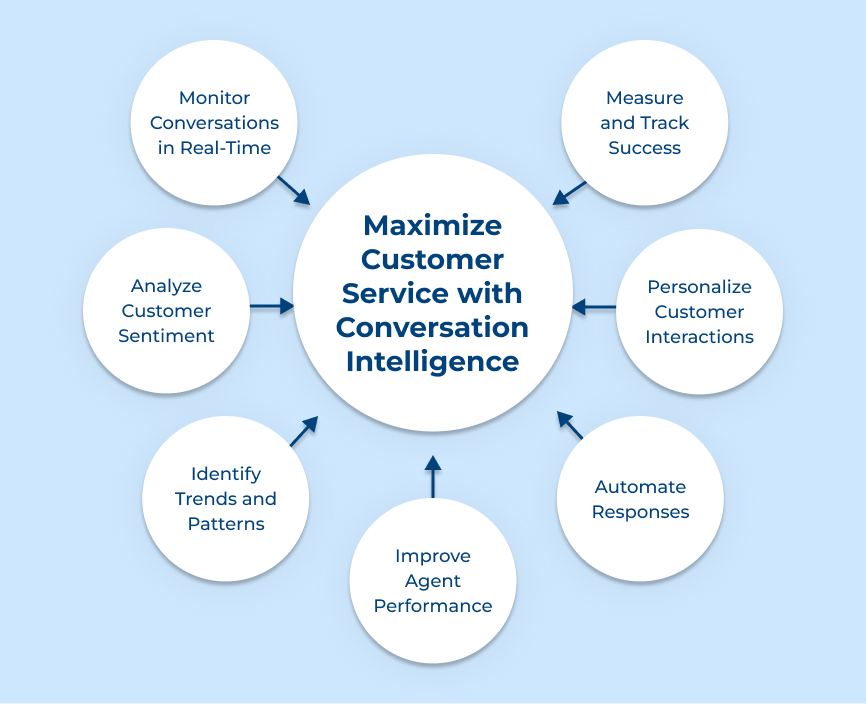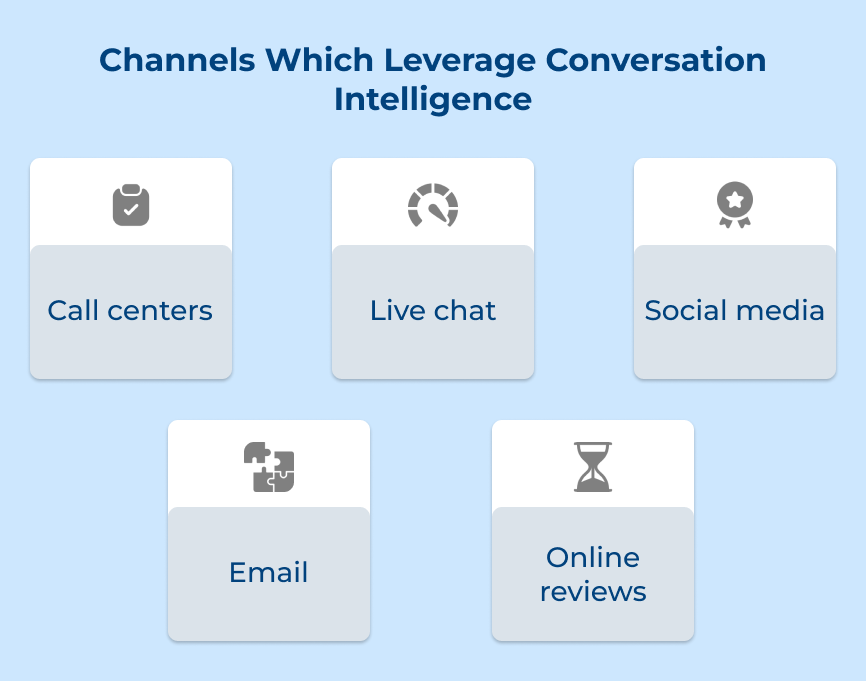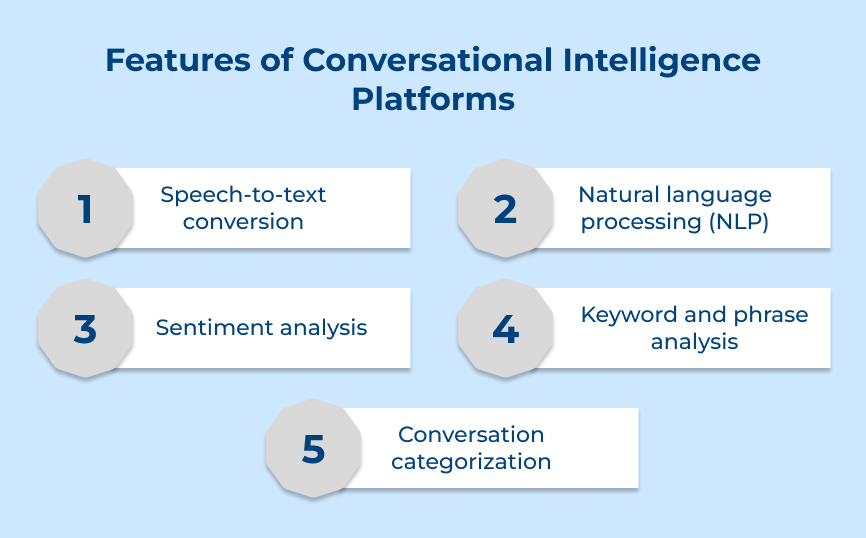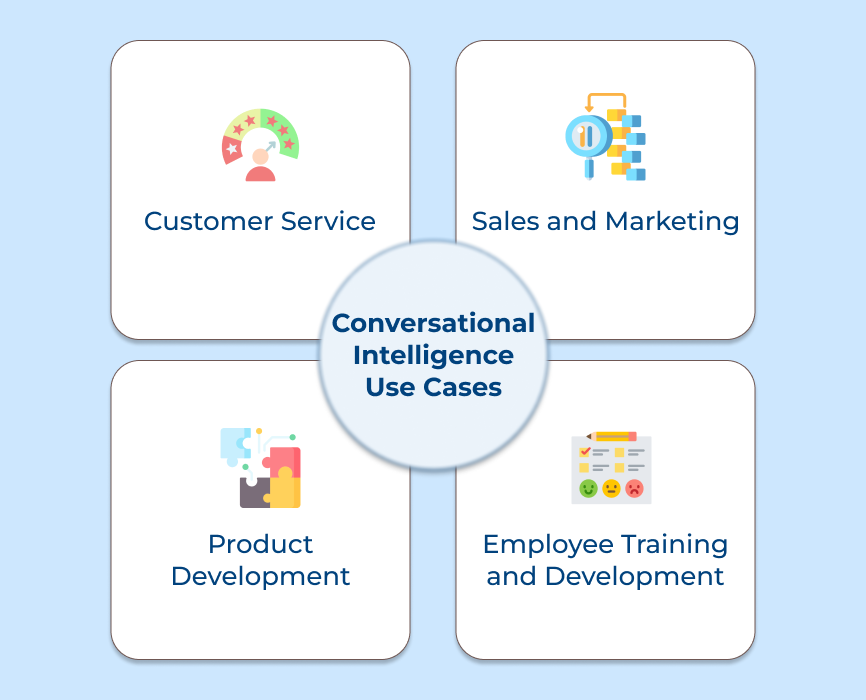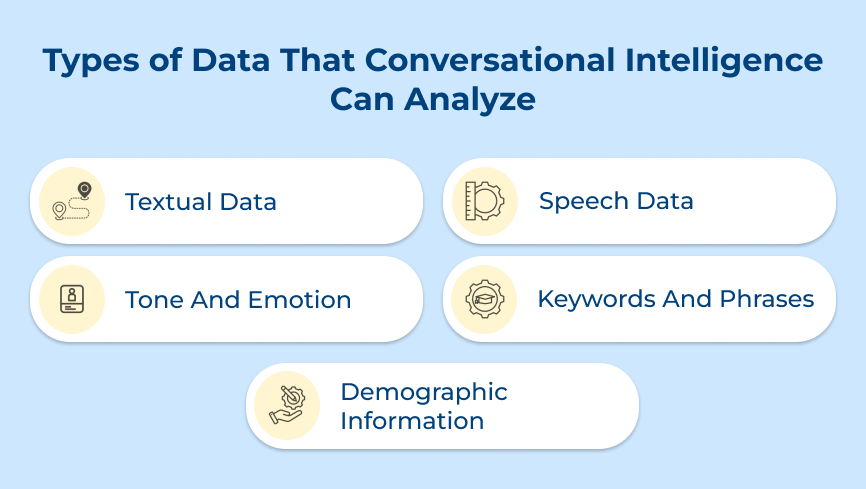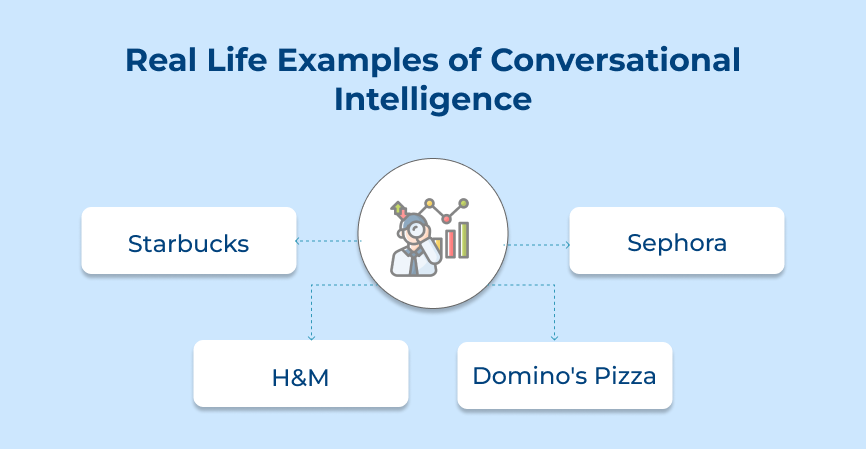1. Monitor Conversations in Real-Time
Conversation Intelligence is a powerful tool that can maximize customer service by monitoring conversations in real-time. Analyzing customer interactions allows companies to gain valuable insights into customer needs and preferences. It allows them to provide more personalized and efficient service.
A practical use case for real-time conversation monitoring is in a customer service call center. Analyzing customer conversations allows calling center agents to receive on-the-spot coaching or support to address customer concerns efficiently. Tracking customer sentiment in real time helps managers identify potential issues and proactively take steps to resolve them.
Pro tips:
- Set up alerts for keywords or phrases that indicate a potential issue and customer dissatisfaction.
- Use real-time analytics to track agent performance and identify training opportunities.
- Utilize AI chatbots to handle routine customer inquiries, freeing up agents to focus on more complex issues.
2. Analyze Customer Sentiment
Analyzing customer sentiment plays an important role in maximizing customer service and improving overall customer satisfaction. Conversation intelligence tools play a key role in helping businesses understand and analyze customer sentiment through conversations with customers. These tools use natural language processing and machine learning algorithms to identify trends, patterns or emotional cues.
A use case for conversation intelligence in customer service could involve analyzing customer calls to identify common complaints or misunderstandings. Pinpointing these issues allows businesses to adjust their processes or training to better serve customers and prevent recurring problems.
Pro tips:
- Use sentiment analysis to identify key emotional cues and address customer concerns effectively.
- Implement feedback loops to continuously improve customer service based on insights from conversation intelligence data.
3. Identify Trends and Patterns
Identifying trends and patterns is a significant aspect of maximizing customer service through conversation intelligence. Analyzing conversations with customers allows businesses to uncover valuable insights that can help improve their overall customer experience. Conversation intelligence tools can identify trends and patterns by automatically analyzing customer interactions.
One use case for the strategy is identifying common customer complaints or issues. Analyzing patterns in customer conversations allows businesses to quickly address recurring problems and improve their products or services accordingly.
Pro tips:
- Review and analyze: Regularly analyze conversation data to stay up-to-date on trends and patterns.
- Identify positive and negative trends: Use conversation intelligence tools to identify both positive and negative trends to better understand customer sentiment.
- Continuously improve: Implement changes based on the insights gained from analyzing trends and patterns to continuously improve the customer experience.
4. Improve Agent Performance
Improving agent performance is crucial for ensuring high-quality customer service. One effective way to achieve this is through the use of conversation intelligence tools. It allows businesses to analyze and optimize customer interactions. The tools help in maximizing customer service by providing insights into agent performance and identifying areas for improvement.
One use case of conversation intelligence is its ability to identify trends and patterns in customer conversations. Businesses can identify common issues and develop targeted solutions. Analyzing data from customer interactions gives valuable insights into customer preferences, pain points and feedback. It can inform training programs and improve agent performance.
Pro tips:
- Regularly reviewing call transcripts and identifying key performance indicators.
- Providing agents with coaching based on conversation intelligence insights can help them improve their skills and deliver better customer service.
- Leveraging AI-powered features can further enhance the effectiveness of conversation intelligence in improving agent performance.
5. Automate Responses
90% of consumers rate immediate responses as critical when they have a customer service question. It is why automating responses is a key component of conversation intelligence. It can greatly maximize customer service by providing quick and efficient solutions to customer inquiries. The use of AI and machine learning allows conversational intelligence systems to analyze customer queries in real time.
One example of how this technology can be utilized is in a customer service chatbot. When a customer reaches out with a concern, the chatbot can analyze the message and provide an automated response accordingly. It can save time for both parties as common inquiries can be addressed immediately without the need for human intervention.
Best practices:
- Personalize automated responses to make them feel more human and engaging. Using the customer’s name or referencing their specific query can help build rapport and improve the overall customer experience.
- Regularly refine automated responses based on customer feedback and interaction data. It will ensure that responses remain relevant and effective in addressing customer inquiries.
- Integrate automated responses across multiple channels to provide seamless and consistent customer service experience.
6. Personalize Customer Interactions
Personalizing customer interactions is paramount for businesses that want to deliver better customer service. Conversation intelligence uses artificial intelligence to analyze and understand customer conversations. Using conversation intelligence allows businesses to identify customer preferences, behaviours and pain points.
One use case for conversation intelligence in personalizing customer interactions is in call center operations. Analyzing customer calls allows businesses to identify common issues or concerns and train their customer service representatives. It not only enhances the customer experience but also improves overall customer satisfaction and loyalty.
Best practices:
- Use data analytics to track customer interactions and identify patterns or trends.
- Implement real-time feedback mechanisms to continuously improve customer interactions.
- Train customer service representatives on how to effectively use conversation intelligence tools to personalize interactions.
7. Measure and Track Success
Conversation intelligence is a valuable tool that can maximize customer service by helping businesses measure and track success. Analyzing conversations between customers and agents allows businesses to gain insights into customer needs, preferences or pain points. The information can then be used to improve customer service strategies and enhance the overall customer experience.
Let’s take an example of a telecommunications company that may use conversation intelligence to analyze customer calls. It identifies common issues that result in long call durations. Addressing these issues proactively allows the company to reduce call times and improve overall customer satisfaction.
Pro tips:
- Set clear goals and metrics: Define key performance indicators that align with the customer service objectives and regularly monitor these metrics to track progress.
- Implement feedback loops: Encourage agents to provide feedback on customer interactions captured by conversation intelligence to continuously refine customer service strategies.
Difference Between Conversational Intelligence vs. Call Tracking Software
Check out the differences between conversational intelligence and call tracking software. It will help understand how each can contribute to optimizing communication strategies in different business contexts.
